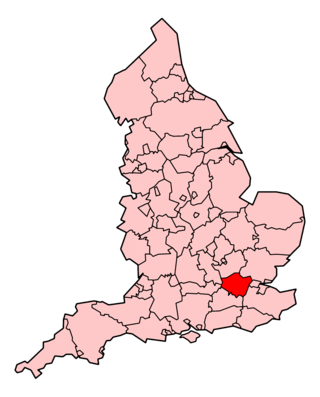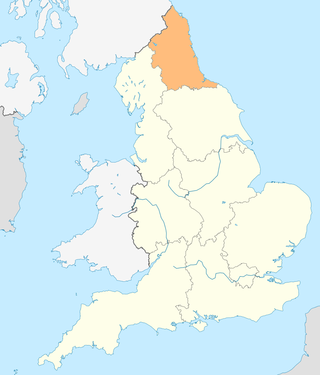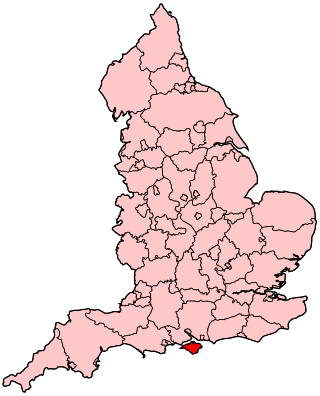Related Research Articles

The London Ambulance Service NHS Trust (LAS) is an NHS trust responsible for operating ambulances and answering and responding to urgent and emergency medical situations within the London region of England. The service responds to 999 phone calls across the region, and 111 phone calls from certain parts, providing triage and advice to enable an appropriate level of response.

The Northern Ireland Ambulance Service is an ambulance service that serves the whole of Northern Ireland, approximately 1.9 million people. As with other ambulance services in the United Kingdom, it does not charge its patients directly for its services, but instead receives funding through general taxation. It responds to medical emergencies in Northern Ireland with the 300-plus ambulance vehicles at its disposal. Its fleet includes mini-buses, ambulance officers' cars, support vehicles, RRVs and accident and emergency ambulances.

The South East Coast Ambulance Service NHS Foundation Trust (SECAmb) is the NHS ambulance services trust for south-eastern England, covering Kent, Surrey, West Sussex and East Sussex. It also covers a part of north-eastern Hampshire around Aldershot, Farnborough, Fleet and Yateley. The service was made an NHS foundation trust on 1 March 2011.

The North West Ambulance Service NHS Trust (NWAS) is the ambulance service for North West England. It is one of ten ambulance trusts providing England with Emergency medical services, and is part of the National Health Service, receiving direct government funding for its role.

The South Western Ambulance Service NHS Foundation Trust (SWASFT) is the organisation responsible for providing ambulance services for the National Health Service (NHS) across South West England. It serves the council areas of Bath and North East Somerset, Bournemouth, Christchurch and Poole Council, Bristol, Cornwall, Devon, Dorset, Gloucestershire, North Somerset, Plymouth, Isles of Scilly, Somerset, South Gloucestershire, Swindon, Torbay and Wiltshire.

Yorkshire Ambulance Service NHS Trust (YAS) is the NHS ambulance service covering most of Yorkshire in England. It is one of ten NHS Ambulance Trusts providing England with emergency medical services as part of the National Health Service it receives direct government funding for its role.

The South Central Ambulance Service NHS Foundation Trust (SCAS) is the ambulance service for the counties of Berkshire, Buckinghamshire, Oxfordshire and most of Hampshire. It is a foundation trust of the National Health Service, and one of ten NHS ambulance trusts in England. As of August 2022, SCAS is currently rated Inadequate by the CQC following multiple failings within the trust. SCAS is the only Ambulance Service in England to have received this rating.

The East of England Ambulance Service NHS Trust (EEAST) is an NHS trust responsible for providing National Health Service (NHS) ambulance services in the counties of Bedfordshire, Cambridgeshire, Essex, Hertfordshire, Norfolk and Suffolk, in the East of England region. These consist of approximately 6.2 million people across an area of 7,500 square miles (19,000 km2).

The North East Ambulance Service NHS Foundation Trust (NEAS) is an NHS foundation trust responsible for providing NHS ambulance services in North East England. Headquartered in Newcastle upon Tyne, NEAS provides emergency medical services to the metropolitan boroughs of Newcastle upon Tyne, Gateshead, North Tyneside, South Tyneside and City of Sunderland; the ceremonial counties of County Durham and Northumberland; and the area of North Yorkshire commonly known as Teesside. NEAS was formed on 1 July 2006, following the merger of the existing North East Ambulance Service with the Tees division of the Tees, East and North Yorkshire Ambulance Service (TENYAS). Northumbria Ambulance Service and County Durham Ambulance Service had previously merged on 1 April 1999.

The West Midlands Ambulance Service University NHS Foundation Trust (WMAS) is responsible for providing NHS ambulance services within the West Midlands region of England. It is one of ten ambulance trusts providing England with emergency medical services, and is part of the National Health Service.

Emergency medical services in the United Kingdom provide emergency care to people with acute illness or injury and are predominantly provided free at the point of use by the four National Health Services (NHS) of England, Scotland, Wales, and Northern Ireland. Emergency care including ambulance and emergency department treatment is only free to UK residents and a charge may be made to those not entitled to free NHS care.

Emergency medical personnel in the United Kingdom are people engaged in the provision of emergency medical services. This includes paramedics, emergency medical technicians and emergency care assistants. 'Paramedic' is a protected title, strictly regulated by the Health and Care Professions Council, although there is tendency for the public to use this term when referring to any member of ambulance staff.
National Health Service ambulance services provide free at the point of use emergency medical care to any person requiring treatment, regardless of immigration or visitor status, within the United Kingdom. These services are provided by National Health Services of England, Scotland, Wales and Northern Ireland. The current system comprises 14 NHS organisations: 11 ambulance services trusts cover the separate regions of England and; individual nationwide services cover Scotland, Wales and Northern Ireland respectively.

Healthcare in the United Kingdom is a devolved matter, with England, Northern Ireland, Scotland and Wales each having their own systems of publicly funded healthcare, funded by and accountable to separate governments and parliaments, together with smaller private sector and voluntary provision. As a result of each country having different policies and priorities, a variety of differences have developed between these systems since devolution.

The East Midlands Ambulance Service NHS Trust (EMAS) provides emergency medical services, urgent care and patient transport services for the 4.8 million people within the East Midlands region of the UK - covering Nottinghamshire, Derbyshire, Leicestershire, Rutland, Lincolnshire and Northamptonshire. It was formed in 1999 by amalgamating several county ambulance services, and in July 2006 was dissolved and reformed under the same name as part of a nationwide reorganisation of ambulance service provision.
The College of Paramedics is the recognised professional body for paramedics in the United Kingdom. The role of the College is to promote and develop the profession across England, Scotland, Wales and Northern Ireland.
111 is a free-to-call single non-emergency number medical helpline operating in England, Scotland and Wales. The 111 phone service has replaced the various non-geographic 0845 rate numbers and is part of each country's National Health Service: in England the service is known as NHS 111; in Scotland, NHS 24; and in Wales, NHS111 Wales.

NHS Pathways is a triage software utilised by the National Health Service of England to triage public telephone calls for medical care and emergency medical services – such as 999 or 111 calls – in some NHS trusts and five of the ambulance services in the country. In its emergency capacity, it has replaced the Advanced Medical Priority Dispatch System for some trusts, and in non-emergency telephone triage it is found in many medical care triage systems, such as NHS 111.

The Isle of Wight NHS Trust is an NHS trust which provides physical health, mental health and ambulance services for the Isle of Wight. The trust is unique in being the only integrated acute, community, mental health and ambulance health care provider in England. It runs St Mary's Hospital and the Isle of Wight Ambulance Service.

Portsmouth Hospitals University NHS Trust is an NHS trust which provides healthcare services to Portsmouth and surrounding areas of Hampshire, and select services to a wider area. It runs the Queen Alexandra Hospital.
References
- ↑ "About AACE". aace.org.uk. Association of Ambulance Chief Executives. Retrieved 28 April 2020.
- ↑ "Pandemic proves combined 999 and 111 services more effective, claim ambulance leaders". hsj.co.uk. Health Service Journal. 8 September 2020. Retrieved 25 October 2020.
- ↑ "Patient handovers and the £500m discharge promise". NHS Confederation. 28 October 2022. Retrieved 8 November 2022.
- ↑ "AACE Membership". aace.org.uk. Association of Ambulance Chief Executives. Retrieved 28 April 2020.